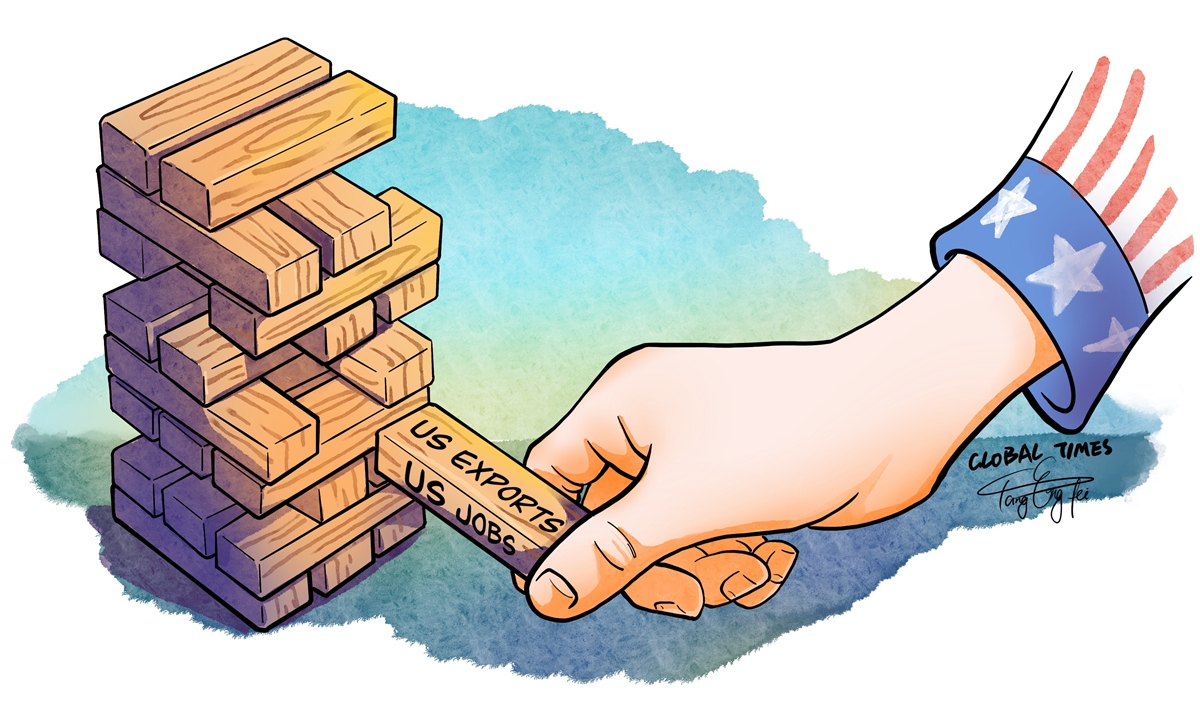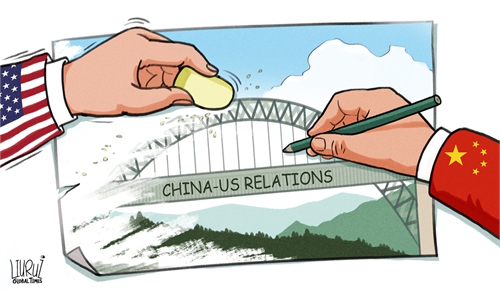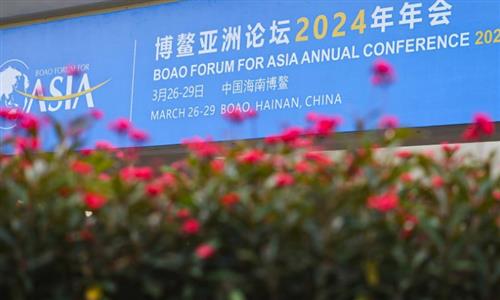
Illustration: Tang Tengfei/Global Times
While many have been focusing on Washington's suppression of the Chinese technology sector, that's just the tip of the iceberg, and less attention has been paid to the spillover effect on US exports and jobs. A report released by the US-China Business Council (USCBC) on Tuesday exposed the submerged and hidden part of the iceberg.
The report showed that US exports to China have been in a downward spiral since 2022, a finding that deserves the serious attention of top US officials. According to the report, the US exported $144.9 billion in goods to China in 2023, down 4.3 percent year-on-year after reaching a record high the year before.
Amid the continuing tensions between China and the US, it is not surprising to see such a decline in the value of American goods exported to China. Over the years, Washington has largely adopted a zero-sum game mindset in its trade policy toward China, trying to gain an upper hand by hitting the Chinese economy.
But the reality is far more complex than the self-righteous logic. The economic ties and interdependence between the two countries are far greater than some politicians imagine. Any action of unilateralism and protectionism will set off a chain reaction and eventually harm the interests of both sides, especially the US economy itself.
According to the report, US exports of semiconductors and components in 2023 fell to the lowest level since 2016. Since peaking in 2021, those exports have fallen by 52 percent.
Amid increasing US sanctions and Washington's technology decoupling push, a decline in US chip exports could mean lower interdependence between the two countries' semiconductor sectors, which may have broad implications for global supply chains, investment flows and the electronics industry.
The reason why China-US trade has developed to the current level is the natural result of the law of the market and the trend of economic globalization. Bucking the trend will not only exacerbate global economic and trade instability, but could also undercut the core competitiveness of US exports.
The advanced-technology industry is one of the fastest-growing sectors and a significant contributor to the US economy. But over the past few years, Washington imposed export controls on the advanced-technology industry. Political elites have tried to persuade Americans that export controls can slow China's technological development, but they deliberately overlooked a fact: export controls hurt US exports of high-tech, high-value-added products.
With sufficient capital and a relatively small labor force, the US has comparative advantages in capital- and technology-intensive industries. If the US allows export controls to continue to hurt its high-end exports, should it expect labor-intensive goods or low-value-added products to drive overall exports? It's ridiculous. The way the US government has handled its trade with China is problematic.
Ordinary Americans are paying for Washington's erroneous China policy. The USCBC report showed that the number of US jobs supported by semiconductor exports has declined. "This is true of US exports to both China and the rest of the world," the report said.
US exports to China matter to US workers. In 2022, China ranked third among all countries in American jobs supported by US exports, behind only Canada and Mexico. The number of American jobs supported by US exports to China was higher than the next two largest Asian markets - Japan and South Korea - combined, the report said.
Chinese customs data showed that US exports to China decreased by 6.8 percent in 2023, which is even greater than the 4.3 percent calculated by the USCBC. What lies behind the decline may be massive layoffs in the US. Job cuts will occur across the nation.
"It is important for us to remind US lawmakers and those in influential positions that every state and Congressional district in the US maintains its own economic and trade relationship with China," said Craig Allen, president of the USCBC, a private, nonpartisan, nonprofit organization representing more than 270 American companies doing business in China.
"Changes in US-China trade policy should be considered very carefully," Allen said.
Washington should listen closely to the voice of the business community, reflect on its trade policy and get it back on the right track.
The author is a reporter with the Global Times. bizopinion@globaltimes.com.cn



